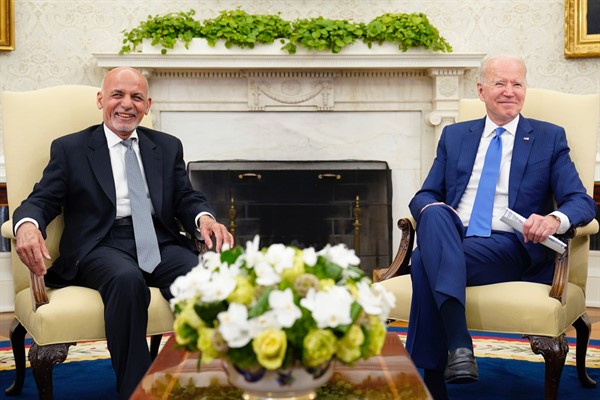Editor’s Note: This is the web version of our subscriber-only weekly newsletter, Middle East Memo, which takes a look at what’s happening, what’s being said and what’s on the horizon in the Middle East. Subscribe to receive it by email every Monday. If you’re already a subscriber, adjust your newsletter settings to receive it.
The return of Taliban rule to Afghanistan 20 years after the group’s ouster by a U.S.-led coalition came as a great shock, first and foremost to the Afghan population. Its many flaws notwithstanding, the now-dissolved, Western-backed Afghan central government allowed Afghans to live under a considerably less repressive system than that imposed by the Taliban the last time they were in power.
But the rapid consolidation of Taliban control over Afghanistan will have wider reverberations, not only in the Central Asian region, but across the Middle East as well. Arab states, some with friendly ties to both the Taliban and the United States, will be weighing up the extent to which they can rely on Washington for support and survival. And a multitude of armed groups, including militias, rebel groups and other non-state actors, might take inspiration from the Taliban’s apparent victory.

